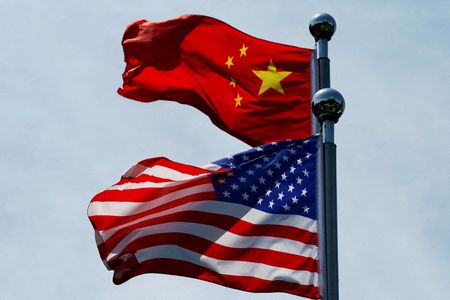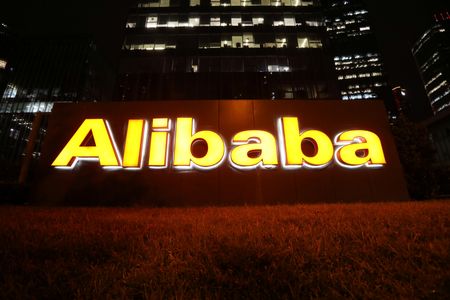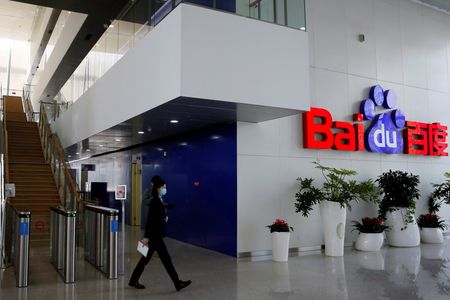 1
1 1
1



HONG KONG/BEIJING (Reuters) – Chinese regulators have asked some of the country’s U.S.-listed firms, including Alibaba, Baidu and JD.com, to prepare for more audit disclosures, sources said, as Beijing steps up efforts to ensure domestic companies remain listed in New York.
This comes as China’s regulators are considering a proposal to allow their U.S. counterparts to inspect audit working papers of some Chinese firms that do not gather sensitive data, two of the sources said.
As part of that move, the China Securities Regulatory Commission (CSRC) and other regulatory agencies earlier this month summoned top internet companies, including search engine leader Baidu Inc and e-commerce major JD.com Inc, four sources told Reuters.
Other internet firms summoned by the regulator included Alibaba Group and Weibo Corp, two of the sources with direct knowledge of the matter said. E-retailer Pinduoduo Inc and gaming firm NetEase Inc also attended the meeting, one of them added.
They were asked to prepare audit documents for the 2021 financial year keeping in mind U.S. regulators’ requests for more disclosure, said the sources, who declined to be named as they were not allowed to discuss details of the meeting.
The companies should better seek Chinese regulators’ advice if they are “uncertain about anything” during the whole process the first source said, which includes auditing and communications with U.S. regulators.
CSRC did not immediately respond to a request for comment.
Alibaba, Baidu, JD.com and Weibo did not immediately respond to a request for comment. Pinduoduo and NetEase also did not immediately provide comment.
The latest step by the Chinese regulators shows Beijing’s willingness to make some concessions to resolve a long-running Sino-U.S. audit stand-off that has put hundreds of billions of dollars of U.S. investments in Chinese companies at stake.
The U.S. authorities are moving towards kicking Chinese companies off American stock exchanges, if the companies’ audit records are unavailable for their inspection for three years in a row.
DELISTING RISKS
In December, the U.S. Securities Exchange Commission (SEC) finalised rules to delist Chinese companies under the Holding Foreign Companies Accountable Act (HFCAA), and said it had identified 273 companies that were at risk, without naming them.
The SEC earlier this month named for the first time five of these firms, including KFC operator Yum China Holdings and biotech firm BeiGene Ltd, that could face delisting.
Describing the SEC move as “normal procedure”, CSRC said it was confident it would reach an agreement with U.S. counterparts to solve the dispute.
Chinese regulators’ deliberations with the New York-listed domestic companies on more audit disclosure were ongoing, three of the sources said.
Washington has long demanded complete access to the books of U.S.-listed Chinese companies, but Beijing, citing national security concerns, bars foreign inspection of working papers from local accounting firms.
A map on the website https://pcaobus.org/oversight/international of the Public Company Accounting Oversight Board (PCAOB), an auditor oversight body tasked to help keep publicly traded companies in the United States in check, showed China as the only jurisdiction that denied the organisation “necessary access to conduct oversight”.
Goldman Sachs estimated on March 11 that U.S. institutional investors held around $200 billion of exposure to Chinese companies’ American depositary receipts (ADRs).
The Nasdaq Golden Dragon China Index, which tracks Chinese companies traded on Wall Street, fell nearly 60% over the past 12 months.
In an attempt to calm investor fears, China’s Vice Premier Liu He said last week talks between Chinese and U.S. regulators on companies listed in the United States have made progress and both sides are working on specific cooperation plans.
(Reporting by Yingzhi Yang, Julie Zhu, Xie Yu and Kevin Huang; Editng by Sumeet Chatterjee and Jacqueline Wong)